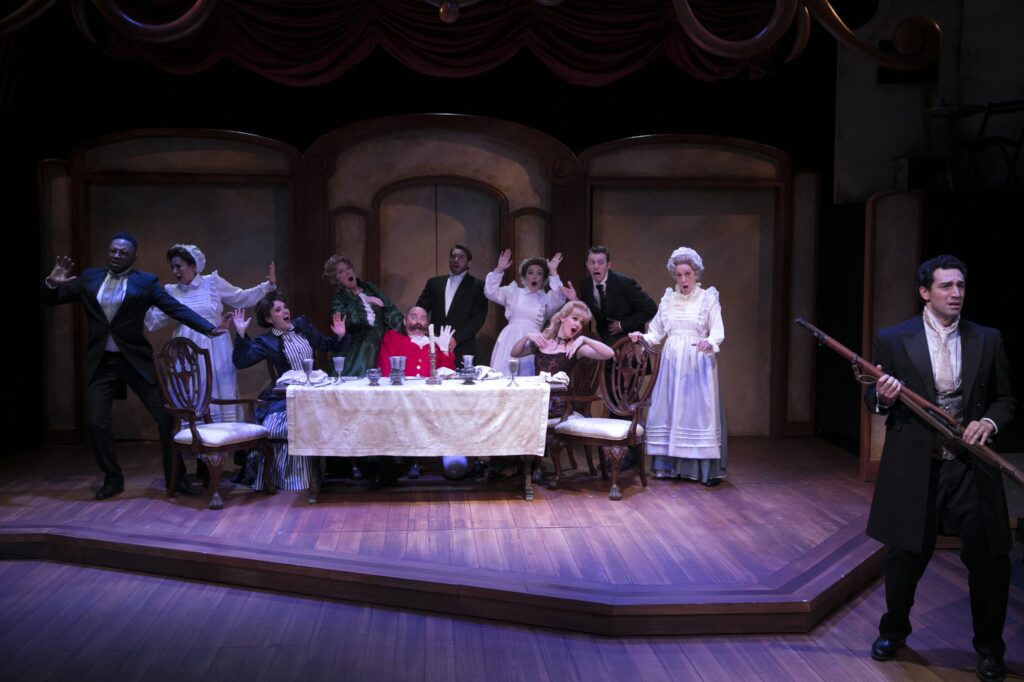
by Michael Cox
Times have changed. The theatre, especially, has changed in the past few years. Every theatre company in this city has declared as much.
This musical comedy, the culminating play of Lyric Stage Company’s season, is filled from beginning to end with the most vile and offensive sentiments. Exploitative and entitled characters espouse horrific colonialist ideals – racism, eugenics and open marriages between cousins – while they systematically quell the lower classes, hold back their capacity for progress and curtail their human dignity at every turn. Woke audience members must endure the most appalling rhetoric. The playmakers who have created A Gentleman’s Guide excuse these problematic sentiments by stating that the characters who express these things are murdered in increasingly fiendish ways. And murder can be delightful when it’s the obnoxious, entitled and tone deaf who are murdered.
The action of the play surrounds Monty Navarro, a man whose race and social class exclude him from wealth and power in Edwardian England. Nonetheless, he’s just 8 living relatives away from inheriting a major financial estate, a prestigious title and a significant chunk of a family fortune. So he decides to murder his way into a cushy life.
Jared Troilo plays Monty and he achieves some of his finest work on the Boston stage to date. Troilo, a graduate of Boston Conservatory, cut his teeth at the Lyric Stage, sometimes even miraculously swinging into a role at the last minute to save a production. A perfect mold for the leading man, Troilo’s vocals are, as ever, pitch perfect. But with Monty Navarro, Troilo has the opportunity to stretch his acting abilities into morally complicated realms. For Monty Navarro sits aside such beguiling and nauseating antiheroes as Iago and Eric Cartman.
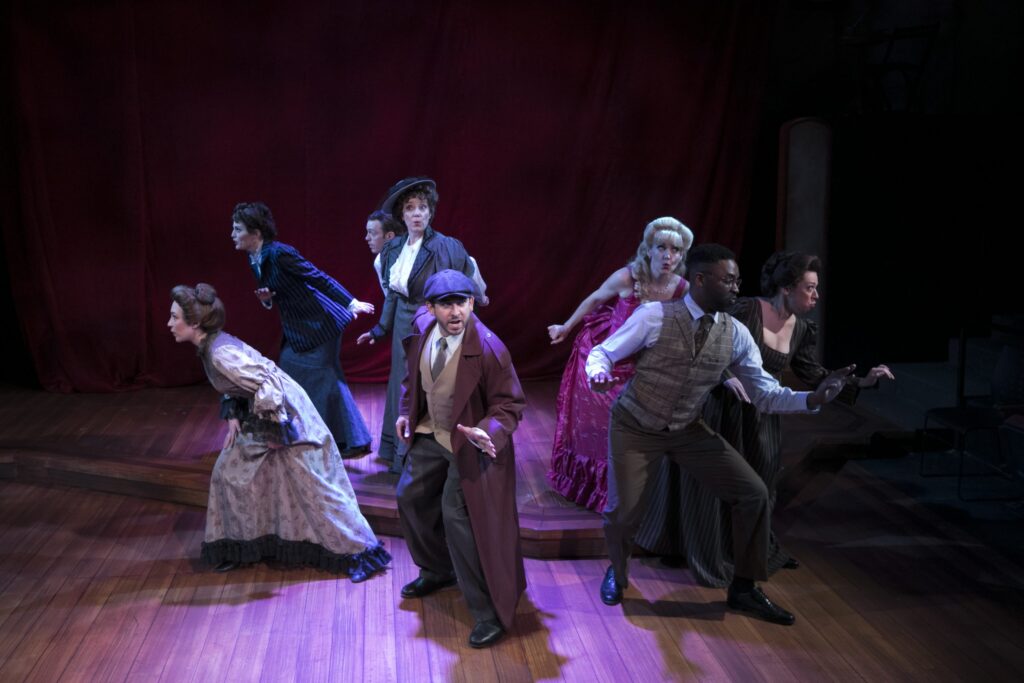
Other Boston favorites are back as well, much to the delight of local audiences. Popular performers like Leigh Barrett, Aimee Doherty, Jennifer Ellis, Neil A. Casey, Teresa Winner Blume and Lori L’Italien appear in this production, and we see the triumphant return of Phil Tayler to the Lyric Stage, an actor who has been greatly missed. And a number of veterans from Broadway and the regional stage debut at the Lyric beside these regulars, including Karen Murphy, Todd McNeel, Jr. and Robert St. Laurence.
Doherty and Ellis leap into the character types for which they are best known. These are not the most compelling female characters written for the stage, but each woman’s charisma and local celebrity make up for the stereotypical nature of their characters.
A successful, show-stopping number from Act II shows these women at their finest. Ellis’ character Phoebe D’Ysquith — Monty’s cousin, a woman with significant social advantages, especially for an ambitious social climber — marches into the room and announces, “I’ve Decided to Marry You.” Unfortunately, Sibella Hallward (played by Doherty) – Monty’s lover, a woman with significant physical charms, and also possessing a husband – hides just out of sight. In this number, Monty is psychologically compelled by greed on one side and lust on the other, and he’s physically compelled by Phoebe on one side and Sibella on the other. Ellis’ crystal soprano intones the pure if privileged Phoebe, while Doherty belts out a brassy and seductive Sibella, and both performers rise above the orchestra (which, in previews, attempted to drown them out at every turn.)
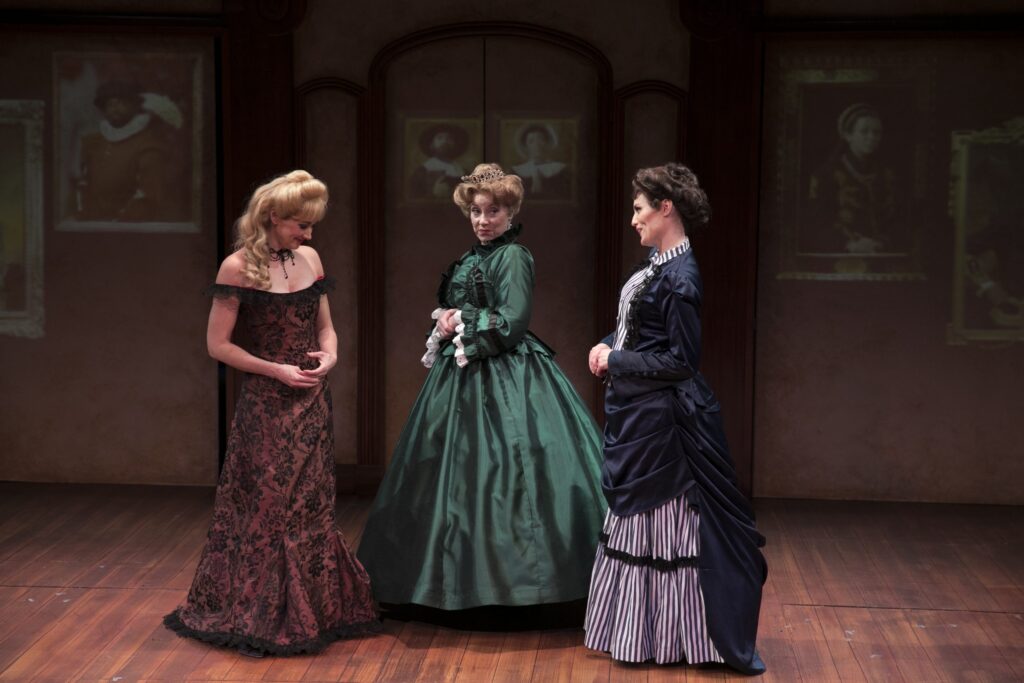
Nonetheless, the temperature changes quickly when it comes to political correctness, so the larger question must again be asked, should A Gentleman’s Guide be canceled, censored or adapted for a new age?
Let’s look at that historically. The show has a troubled pedigree. It was officially adapted from 1907 novel Israel Rank: The Autobiography of a Criminal by Roy Horniman. Though critics lauded Horniman’s work as “brilliantly clever” and “amazingly well-written,” the novel sets forth this shocking declaration: “I am convinced that many a delightful member of society has found it necessary at some time or other to remove a human obstacle… and has done so undetected and undisturbed by pangs of conscience.”
Though this musical was officially adapted from Israel Rank, it bears a closer resemblance to the 1949 British film Kind Hearts and Coronets. More than 30 years after Israel Rank was published and following two World Wars, audiences were charmed by the avarice in Kind Hearts, and critics hailed it as well. To this day it remains on the many a critic’s list of the top films of the 20th Century. But when the film was first brought to this country, American censors struck entire segments of celluloid from Kind Hearts, immorality was downplayed, and the dialogue was changed, including the removal of the N-word.
In times past, unrepentant evil that goes unpunished was cause for censorship. This doesn’t offend us today. Today we see unrepentant evil not only unpunished but reward with political office. Today it’s baldly racist lyrics that cause us alarm.
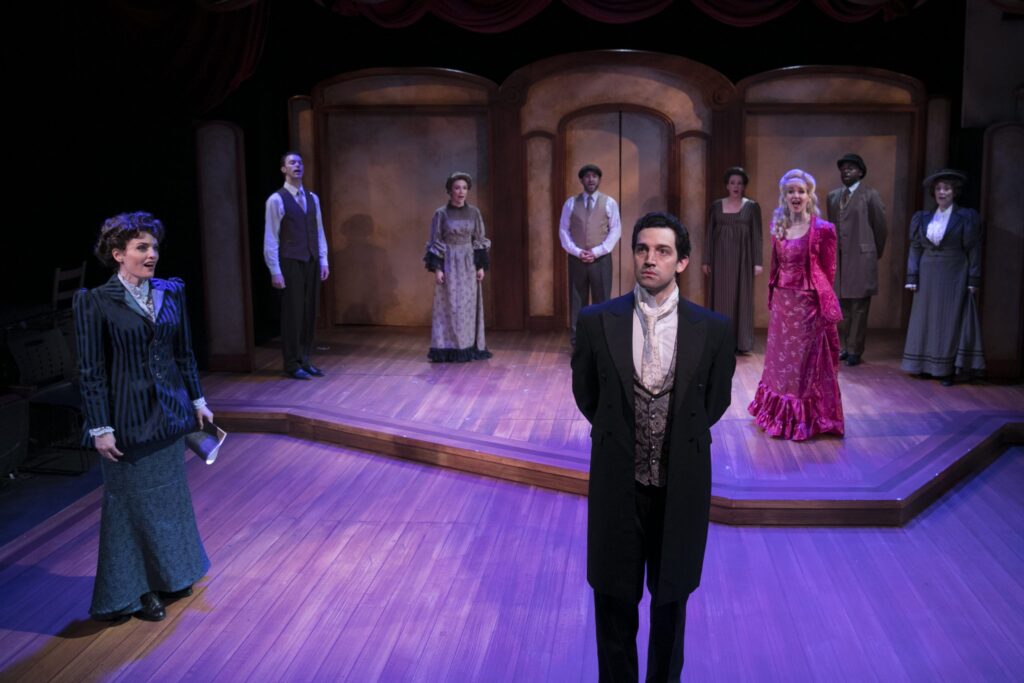
In 2004, book and lyrics writer Robert L. Freedman and music and lyrics writer Steven Lutvak played a small workshop production of Kind Hearts and Coronets the musical, and in 2013 the show opened on Broadway under a new name and after an extensive legal battle with the film’s copyright holder. Ultimately, A Gentleman’s Guide was a hit, critically acclaimed, popular and lucrative.
The show is transgressive, but the early 2000s were a time for that. Over a quarter of the Tony award winning musicals in the first two decades of this century were transgressive satires, including The Producers, Hairspray, Avenue Q, Spamalot and of course The Book of Mormon: The Musical.
The lyrics in some of the aforementioned musicals are often far more outrageous and offensive than they are in A Gentleman’s Guide, but they are also far more funny. Is this a product of the times or a product of the production? Perhaps it’s because the characters in some of those musicals are far more interesting. The characters in A Gentleman’s Guide are not only completely amoral, they’re more often than not paper thin.
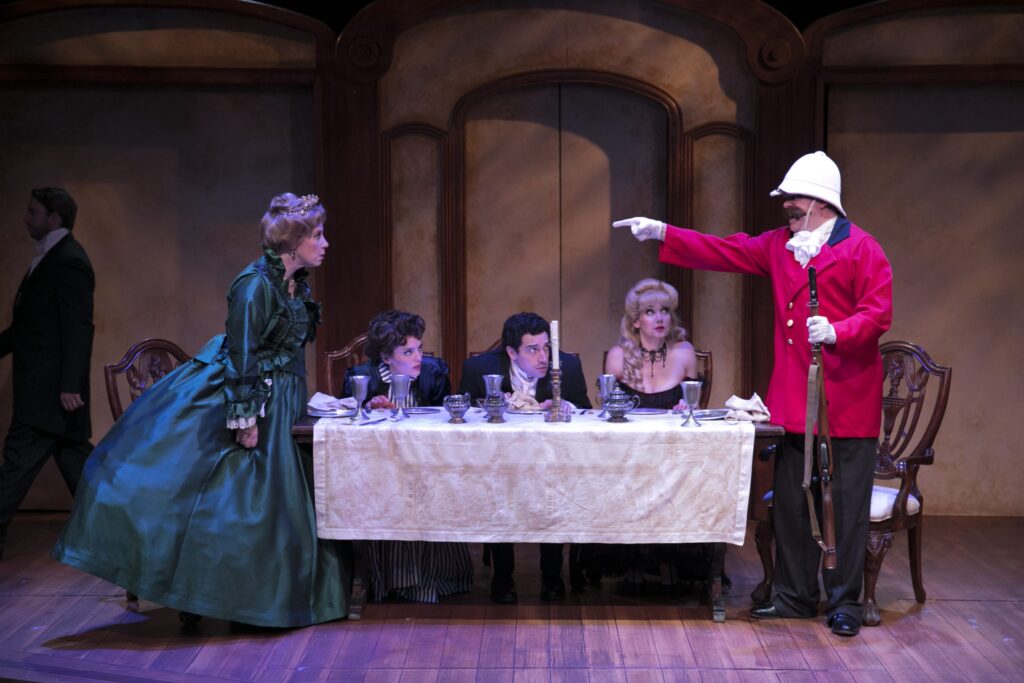
As is his wont, director Spiro Veloudos has chosen to undertake an ambitious project, a project that pushes the limits of his resources. In a script where the characters lack complexity, the actors need to work like mad to make up for the defect.
The show is famously known for the fact that one actor plays the 8 murdered members of the D’Ysquith family, jumping from one character to the next as they are, one by one, bumped off before our eyes. In this production that actor is Neil A. Casey. This device can be hilarious to some and annoying to others, but one thing is for certain. Compelling ideas of objective and motivation are convoluted by quick costume changes.
An overdrawn performance can take humor that delicately dances on the razor’s edge and push it to the side of vulgarity. This production succeeds when the actors find humanity and practice discretion in a script that offers little of those things, it succeeds when the actors focus on telling a compelling story.
Should A Gentleman’s Guide to Love & Murder be cancelled? That’s something you’ll have to decide on your own. Since it hasn’t been cancelled yet, you have that opportunity. The production runs until May 22. Tickets can be purchased at Lyricstage.com or by calling (617) 585-5678.


Very silly argument. It’s a hilarious musical, brilliantly written. As the chorus says at the beginning: if you don’t like it, leave.
I believe the was meant to be tongue in cheek…